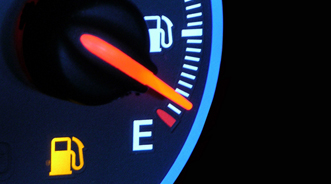Edmunds.com Tries to Bring Perspective to Gas Price Hikes

By subscribing, you agree to receive communications from Auto Remarketing and our partners in accordance with our Privacy Policy. We may share your information with select partners and sponsors who may contact you about their products and services. You may unsubscribe at any time.
SANTA MONICA, Calif. –
Should dealers rush out to fill their inventories with fuel-efficient models because of this week’s gas price movements? Maybe not, if reasoning from Edmunds.com has merit.
The company stressed that the biggest one-day gain for oil prices in more than two years may focus more of America’s attention on rising fuel costs. But site analysts emphasized Wednesday that the price increases at the pump are not yet as dramatic as other jumps in the last few years.
Since September of last year, Edmunds.com calculated that average monthly gas prices have risen 45 cents to $3.21. That placed the February month-to-date reading at an increase of 16.4 percent.
However, during the past four years, site analysts pointed out there have been several periods where gas prices increased by even more substantial amounts.
For example, Edmunds.com noted back in 2008, gas prices rose 94 cents — or 33.4 percent — to $4.11 between February and June. The site also mentioned gas prices jumped 63 cents from February to May 2006, 86 cents from February to May 2007, and 94 cents from December 2008 to June 2009.
“Between yesterday’s surge in oil prices and the recent unrest in the Middle East and North Africa, the media might stir itself into a frenzy, but past experience suggests consumer buying behavior won’t change quite yet,” explained Lacey Plache, chief economist at Edmunds.com.
Subscribe to Auto Remarketing to stay informed and stay ahead.
By subscribing, you agree to receive communications from Auto Remarketing and our partners in accordance with our Privacy Policy. We may share your information with select partners and sponsors who may contact you about their products and services. You may unsubscribe at any time.
“When gas prices rise substantially and suddenly like they did in 2008, consumers are more likely to run out and replace their gas-guzzling cars, But more gradual increases in gas prices like what we’re seeing now do not tend to have as strong an effect on overall auto sales," Plache added.
Instead of driving consumers to the sales showroom, Plache thinks the current pace of gas price increases is more likely to curb gasoline consumption habits through changes to driving behavior.
Weighing Fuel Efficiency Against Cost Efficiency
For consumers already in the market for a vehicle, Edmunds.com asserted higher gas prices do not necessarily mean they need to make a dramatic change in the units they prefer to drive in order to save money.
In particular, Edmunds.com cautioned that buying a new — and possibly more expensive — hybrid might not be more cost effective.
“With incentives at their current levels, it is possible that any pinch felt by increases in gas prices could be counter-balanced by lower payments or by improved fuel economy in any new car,” Plache pointed out.
“So, even in an environment of high fuel prices, it could still make more sense to go after a new Camry instead of a new Prius,” Plache added


